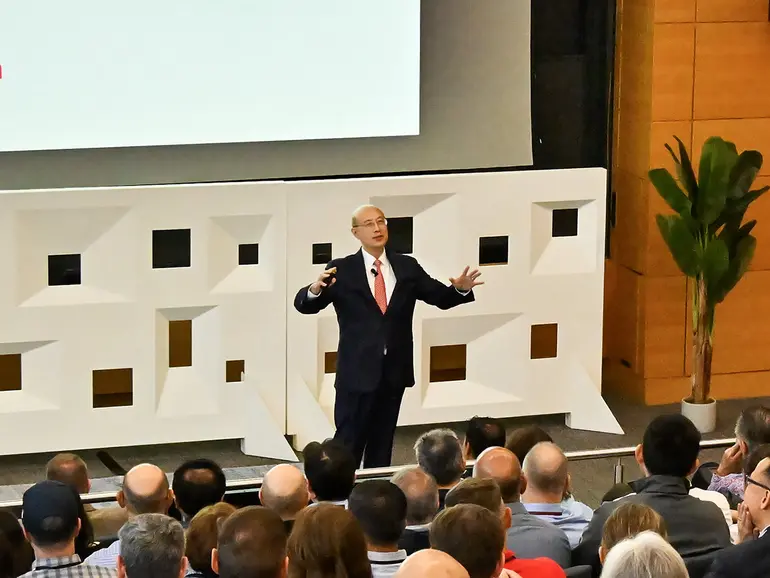New MIT Sloan courses focus on deep learning, gen AI, and fintech
Additions to the MIT Sloan 2025 – 2026 course list include Intensive Hands-On Deep Learning, AI and Money, and The Arrhythmia of Finance.

Faculty
Andrew W. Lo is the Charles E. and Susan T. Harris Professor at the MIT Sloan School of Management and the director of MIT's Laboratory for Financial Engineering. He is also a Principal Investigator at the Computer Science and Artificial Intelligence Laboratory (CSAIL), an affiliated faculty of the Department of Electrical Engineering and Computer Science, a member of the Operations Research Center (ORC) and the Institute for Data, Systems, and Society (IDSS), all at MIT. He is also an external faculty at the Santa Fe Institute, Santa FE, NM. He received his AM and PhD in economics from Harvard University, his BA in economics from Yale University, and graduated from the Bronx High School of Science. He began his academic career at the University of Pennsylvania's Wharton School, where he was an Asistant and Associate Professor.
His current research spans several areas: evolutionary models of investor behavior and adaptive markets; systemic risk and financial regulation; quantitative models of financial markets; financial applications of machine-learning techniques and secure multi-party computation; healthcare finance; and deep-tech investing, including fusion energy and advanced manufacturing. Recent projects include:
An evolutionary model of asset prices based on the Adaptive Markets Hypothesis
New financing methods/ business models for accelerating biomedical innovation
Quantitative approaches to deep-tech investing
Applications of AI, especially machine learning and LLMs, to financial advice, “quantamental investing,” and healthcare finance
Lo has published extensively in academic journals (see http://alo.mit.edu) and his most recent book is The Adaptive Markets Hypothesis: An Evolutionary Approach to Understanding Financial System Dynamics. His awards include Sloan and Guggenheim Fellowships, the Paul A. Samuelson Award, the Harry M. Markowitz Award, the CFA Institute’s James R. Vertin Award, as well as election to Academia Sinica, the American Academy of Arts and Sciences, the American Finance Association, the Econometric Society, and TIME’s 2012 list of the “100 most influential people in the world.” His trade book Adaptive Markets: Financial Evolution at the Speed of Thought published in 2017 has also received a number of awards, listed here, and he has received multiple teaching awards from the University of Pennsylvania and MIT.
Lo is also a research associate of the National Bureau of Economic Research; a cofounder and board member of BridgeBio Pharma and Uncommon Cures; a cofounder of AlphaSimplex Group, QLS Advisors, QLS Technologies, Quantile Health, and Rutherford Energy Ventures; a board member of GCAR, n-Lorem, and Vesalius; and an investor in and advisor to a number of biotech companies and non-profit organizations. For a complete list of Lo’s affiliations and conflicts of interest disclosure, please click here.
Dai, Yuehao, Andrew W. Lo, Manish Singh, Qingyang Xu, and Ruixun Zhang. Oxford Bulletin of Economics and Statistics. Forthcoming.
Thakor, Richard T. and Andrew W. Lo. Research Policy. Forthcoming. SSRN Preprint.
Li, Xuelin, Andrew W. Lo, and Richard Thakor. Review of Finance. Forthcoming. SSRN Preprint.
Ben Chaouch, Zied, Qingyang Xu, ... and Andrew W. Lo et al. Computers in Biology and Medicine Vol. 198, No. Part B (2025): 111150.
Lo, Andrew W., and Ruixun Zhang. Management Science Vol. 71, No. 9 (2025): 7537-7559. SSRN Preprint.
Lo, Andrew W., Ruixun Zhang, and Chaoyi Zhao. Scientific Reports Vol. 15, (2025): 31774.

Additions to the MIT Sloan 2025 – 2026 course list include Intensive Hands-On Deep Learning, AI and Money, and The Arrhythmia of Finance.

Faculty presented the latest insights from their work in corporate leadership, precision medicine, climate policy, personal finance, and deep tech during MIT Sloan Reunion 2025.
Professor Andrew W. Lo argues that today's AI chatbots are fundamentally unsuited to serve as financial advisers. In his view, they resemble "digital sociopaths," fluent and convincing, yet lacking empathy and moral judgment. Even so, Lo believes large language models could eventually become valuable tools — particularly for small investors with limited experience.
Should you use AI for financial advice? Professor Andrew W. Lo says not yet. Large language models like Copilot or ChatGPT aren’t suited to being used as financial advisers because they are the digital equivalent of sociopaths — smooth, persuasive and devoid of empathy.
Professor Andrew W. Lo, senior lecturer Egor Matveyev, and co-author wrote: "In our paper, we compile the first comprehensive dataset covering the full universe of U.S. nonprofit endowments. Using IRS Form 990 filings from 2008 to 2020, we study nearly 375,000 nonprofit organizations, including about 40,000 that maintain endowment assets. We combine detailed investment disclosures on Schedule D with governance, compensation, and financial information on the main form to examine how endowment strategy and performance relate to organizational structures and oversight practices."
Investors should ask broad and unbiased questions when interacting with large language models in order to get the most accurate answers, professor Andrew W. Lo told Axios.
This online program from the MIT Sloan School of Management and the MIT Computer Science and Artificial Intelligence Laboratory (CSAIL) challenges common misconceptions surrounding AI and will equip and encourage you to embrace AI as part of a transformative toolkit. With a focus on the organizational and managerial implications of these technologies, rather than on their technical aspects, you’ll leave this course armed with the knowledge and confidence you need to pioneer its successful integration in business.
This program is designed to help you meet the escalating demand for strategic AI-and machine learning-informed leadership and gain a strategic advantage for your organization in an AI-driven world.